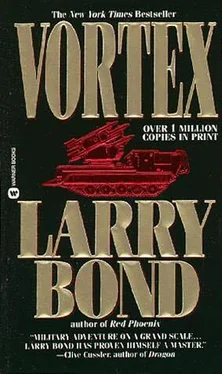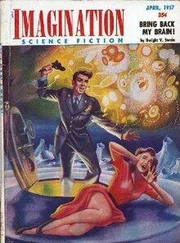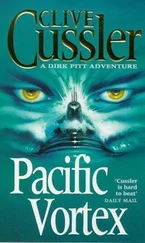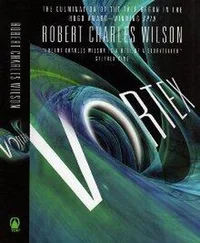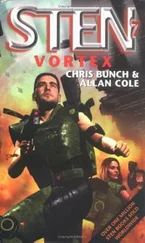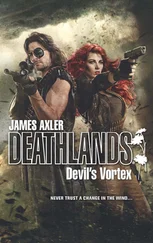Well, so be it. Even though the buck ultimately stopped with the
President, a lot of the spare change landed on his own desk. Making unpalatable decisions went with the territory. Forrester smiled inwardly, remembering his relatively carefree days in the U.S. Senate. Only congressmen had the luxury of speaking and acting out of both sides of their mouths at the same time.
In the meantime, the President expected concrete recommendations from this NSC session and he expected them soon. Forrester looked up, encompassing the entire group in one sweep of his eyes.
“Okay. Let’s move on to the broader problem: just what the hell are we going to do about this mess?”
He was answered by silence.
The Vice President frowned. Perhaps it was time for a small prod.
“Come on, folks. The American people aren’t paying us to sit around on our behinds.” He pointed toward the map.
“Now we know what’s happening in
South Africa is going to hurt us and hurt us badly. So what can we do about it? Ed?”
Hurley fiddled with his glasses, polished them quickly, and then slipped them back on his nose-plainly stalling for time. Finally, he shrugged.
“Our people at State could draft a statement for the President’s signature demanding that Vorster resign and schedule new elections under their constitution.”
Forrester hid his disappointment. He’d expected something more direct and forceful from Hurley. Still, the suggestion was worth considering as a first step.
“Vorster will simply ignore it,” Hamilton Reid interjected.
“Of course he will!” Hurley shot back.
“But we need to tell the world just where we stand before we go any further.”
That was true, Forrester thought. A clearly worded call for Vorster’s resignation would also help take some of the political heat off the administration. Even more importantly, it would commit the U.S.
government to finding some way to pressure Vorster out of power. He said as much to the group.
Reid persisted, “Maybe so, but how much can we really
do? Directly interfering in the internal affairs of a legitimate government…” The secretary of commerce paused, realization dawning on his face.
“My God, they aren’t a legitimate government. They grabbed power illegally!”
Nicholson continued the thought.
“And Vorster was kind enough to tell everyone that on worldwide television.” He turned to Forrester.
“Mr. Vice
President, I move that we recommend that the President withdraw our recognition of South Africa’s government until voters there have elected new leaders according to their own somewhat lopsided constitution. “
Forrester felt a little life returning to the group and smiled slightly.
“We may reword the last bit of that, but I agree that we should explicitly label Vorster’s government illegal and break off our relations with it.”
He leaned forward and lowered his voice.
“But let’s face hard facts. We all know that Vorster won’t capitulate or hand over power simply because we say he should. In fact, we may just be giving him more propaganda ammunition for the home folks. What the President needs to know is this exactly what can we do to push the son of a bitch out of office?”
The secretary of commerce raised a hesitant hand.
“I still think South
Africa’s economy offers the best avenue for attacking him. If enough of his white supporters see their livelihoods and businesses going down the drain, they’ll try to pull the plug on Vorster themselves.” Reid grimaced.
“But conventional sanctions take a long time to work. And anyway, I’m not sure we can do anything that would wreck South Africa’s economy faster than Vorster’s own Namibian war and crazy security crackdowns.”
Forrester frowned.
“What about using a wider range of measures?”
“How wide?” asked Reid. Other heads around the table nodded, agreeing with the commerce secretary’s push for a clearer definition. Few people were willing to commit themselves to any concrete recommendation without some firmer indication of the President’s intentions.
Fair enough. It was time to drop a small bombshell, Forrester thought.
“The President has authorized us to consider anything short of open war.
“
A deep bass baritone from near the end of the table cut through the stunned silence.
“Then it’s a blockade.”
Forrester looked at the tall, lantern-jawed man in an Air Force uniform.
Combat service ribbons and decorations added splashes of different colors to his dark blue jacket.
“A blockade, General?”
Gen. Walter Hickman, chairman of the Joint Chiefs, nodded once.
“We can move a carrier battle group down from the Indian Ocean and cut off South
Africa’s seaborne commerce. “
Nicholson was shocked and didn’t bother concealing it.
“Use the military?
That’s insane! A blockade on South Africa’s imports and exports would send world commodity prices into the stratosphere! And that’s precisely what we’re trying so desperately to stop!”
Others around the table muttered their agreement.
Forrester held up his hand for silence and got it. He tapped Reid’s economic report.
“I don’t think there’s anything we can do to stop these price increases, Chris. As long as those bastards in Pretoria are in power, we’re going to be in trouble. So maybe it’s worth some short-term pain to get rid of what would otherwise be a long-term problem.”
Nicholson changed tack.
“What if Vorster decides to retaliate against
U.S. citizens still inside South Africa?”
“Highly unlikely, Mr. Director.” Edward Hurley reentered the fray.
“Vorster’s already at war with the Cubans, the Narnibians, and at least four-fifths of his own population. I doubt he’ll want to add us to the list.”
The bearded State Department official pushed his glasses back up his nose before continuing.
“In any event, there aren’t many Americans left in
South Africa as targets. Fewer than three or four hundred as near as we can tell. ” He flipped to a page near the back of his briefing binder.
“We’ve been tracking the numbers on a day-by-day basis. Most tourists left after we posted the travel advisory, and companies still
doing business inside the RSA have been shuttling their American executives home for weeks. Plus, we’re already down to a skeleton staff at the embassy.”
“All right. But what if their navy tried to stop us?” Nicholson seemed determined to find reasons to scuttle the proposed blockade.
Hickman snorted.
“The South African Navy has a few short-range missile boats, three old submarines, and no naval air capability. They’re a fourth-rate naval power. ” He shook his head.
“Hell, Libya’s a bigger naval threat! Our ships can patrol well out to sea-beyond their range-and block a merchant ship traffic into and out of the country.”
Nicholson purpled.
“I don’t doubt that we could establish such a blockade,
General. That’s not my point.” He turned to Forrester.
“The key question is, should we do such a thing in the first place?”
“What’s your alternative, Chris?” Forrester asked, curious to see what the
CIA director had in mind.
Nicholson opened his mouth and then shut it again, taken aback.
“I’m not saying there’s any kind of a guarantee that a blockade will force the South Africans to dump Vorster and act more reasonably,” Hickman explained, “but it would sure as hell boost the pressure on their economy.”
“Just how much pressure?” Forrester directed his question to a still-stunned Hamilton Reid.
The secretary of commerce rubbed the bridge of his nose.
Читать дальше
